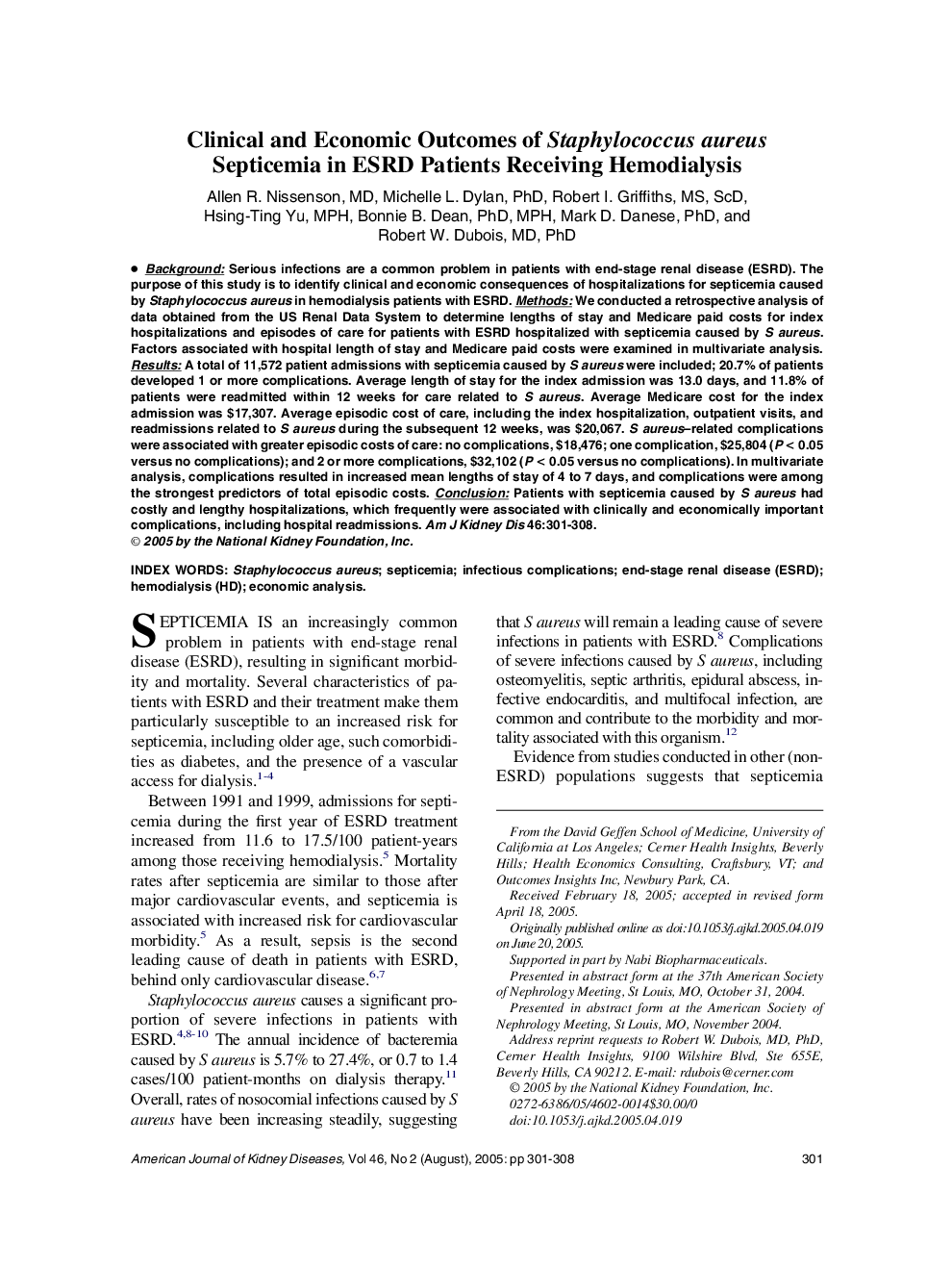| Article ID | Journal | Published Year | Pages | File Type |
|---|---|---|---|---|
| 10047463 | American Journal of Kidney Diseases | 2005 | 8 Pages |
Abstract
Background: Serious infections are a common problem in patients with end-stage renal disease (ESRD). The purpose of this study is to identify clinical and economic consequences of hospitalizations for septicemia caused by Staphylococcus aureus in hemodialysis patients with ESRD. Methods: We conducted a retrospective analysis of data obtained from the US Renal Data System to determine lengths of stay and Medicare paid costs for index hospitalizations and episodes of care for patients with ESRD hospitalized with septicemia caused by S aureus. Factors associated with hospital length of stay and Medicare paid costs were examined in multivariate analysis. Results: A total of 11,572 patient admissions with septicemia caused by S aureus were included; 20.7% of patients developed 1 or more complications. Average length of stay for the index admission was 13.0 days, and 11.8% of patients were readmitted within 12 weeks for care related to S aureus. Average Medicare cost for the index admission was $17,307. Average episodic cost of care, including the index hospitalization, outpatient visits, and readmissions related to S aureus during the subsequent 12 weeks, was $20,067. S aureus-related complications were associated with greater episodic costs of care: no complications, $18,476; one complication, $25,804 (P < 0.05 versus no complications); and 2 or more complications, $32,102 (P < 0.05 versus no complications). In multivariate analysis, complications resulted in increased mean lengths of stay of 4 to 7 days, and complications were among the strongest predictors of total episodic costs. Conclusion:Patients with septicemia caused by S aureus had costly and lengthy hospitalizations, which frequently were associated with clinically and economically important complications, including hospital readmissions.
Keywords
Related Topics
Health Sciences
Medicine and Dentistry
Nephrology
Authors
Allen R. MD, Michelle L. PhD, Robert I. MS, ScD, Hsing-Ting MPH, Bonnie B. PhD, MPH, Mark D. PhD, Robert W. MD, PhD,
